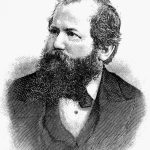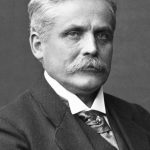Date of Birth: June 22, 1767
Zodiac Sign: Cancer
Date of Death: April 8, 1835
Biography
Friedrich Wilhelm Christian Karl Ferdinand von Humboldt, commonly known as Wilhelm von Humboldt, was a German philosopher, linguist, government functionary, diplomat, and founder of the Humboldt University of Berlin, which he established in 1810. Born on June 22, 1767, in Potsdam, Prussia, Humboldt made significant contributions to the philosophy of language and education. He was the older brother of the renowned naturalist and explorer Alexander von Humboldt. Humboldt’s early education was overseen by private tutors, and he later attended the University of Frankfurt (Oder) and the University of Göttingen, where he studied law and philosophy. His intellectual pursuits led him to engage deeply with the works of Immanuel Kant, whose ideas significantly influenced his thinking. Throughout his career, Humboldt held various governmental positions, including serving as the Prussian minister of education, where he implemented sweeping reforms that shaped the modern German education system. His philosophy emphasized the role of individual development and the importance of a well-rounded education. Humboldt’s contributions to linguistics include his theory of language as an activity (energeia) rather than a static product (ergon). His ideas laid the groundwork for modern linguistic theory and influenced later philosophers and linguists such as Noam Chomsky. Humboldt passed away on April 8, 1835, in Tegel, Berlin, leaving behind a legacy that continues to influence various fields of knowledge and education.
5 Interesting Facts about Wilhelm von Humboldt
1. Wilhelm von Humboldt founded the Humboldt University of Berlin in 1810, which remains one of Germany’s most prestigious universities.
2. Humboldt’s theory of language influenced the development of modern linguistics and the study of language philosophy.
3. He served as the Prussian minister of education and implemented reforms that established the foundation of the modern German education system.
4. Humboldt was deeply influenced by the philosophy of Immanuel Kant, which shaped his educational and linguistic theories.
5. He had a significant impact on the field of anthropology through his writings on the diversity of human cultures and languages.
5 Most Interesting Quotes from Wilhelm von Humboldt
1. “True enjoyment comes from activity of the mind and exercise of the body; the two are ever united.”
2. “Language is the formative organ of thought. Intellectual activity, entirely mental, entirely internal, and to a certain extent passing even without consciousness, becomes through sound external and perceptible.”
3. “The limits of my language mean the limits of my world.”
4. “The highest ideal of man is to know and to will.”
5. “The true purpose of education is to teach a man to carry himself triumphant to the sunset.”
Highest Net Worth Achieved
Wilhelm von Humboldt did not achieve significant personal wealth by contemporary standards, as he was primarily a public servant and scholar. His contributions are valued more in intellectual and educational advancements rather than financial terms.
Children
Wilhelm von Humboldt had eight children with his wife Caroline von Dacheröden. Among his children, his son Wilhelm von Humboldt (1800-1879) became a notable figure in his own right.
Relevant Links
1. [Humboldt University of Berlin](https://www.hu-berlin.de/en
3. [Britannica – Wilhelm von Humboldt](https://www.britannica.com/biography/Wilhelm-von-Humboldt
4. [Internet Encyclopedia of Philosophy – Wilhelm von Humboldt](https://iep.utm.edu/humboldt/

